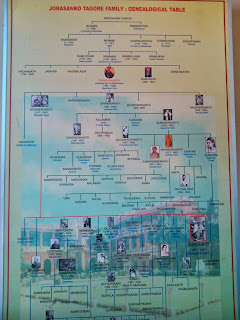Prasanna Kumar Tagore
Today is the 135th death anniversary of Prasanna Kumar Tagore. Prasanna Kumar Tagore (also spelt Prosunno Kumar Tagore, Prasanna Kumar Tagore) (21 December 1801–30 August 1886) was a son of Gopi Mohan Tagore, one of the founders of Hindu College. He belonged to the Pathuriaghata branch of the Tagore family and was one of the leaders of the conservative branch of Hindu society. He was educated at home, in Sherborne's school and Hindu College, when it was established in 1817. With his knowledge of traditional smriti and western law, he started practising law in the Dewani Adalat (civil court). Within a short period he was appointed the government lawyer, but left that job in 1850, to look after family property. When the Viceroy’s Council was formed in 1854, he joined as clerk-assistant. At that time he was respected as one of the rich Bengalis. Although he was founder-secretary of the conservative Gaudiya Samaj (1823), he had participated in Raja Rammohun Roy’s campaign for the abolition of sati. He was one of the original trustees (by the 1830 Trust deed of Brahmo Sabha) of the Brahmo Samaj. Derozio severely criticized the celebration of Durga Puja by Prasanna Coomar, who called himself a follower of the theistic Rammohan. He was actively associated with many organisations of the period. Along with Dwarkanath Tagore he was actively involved in setting up Landholders' Society and British Indian Association. He became president of the latter in 1867.
He played a leading role in the spread of education. The famous Tagore Law Professorship of Calcutta University was maintained from the interest earned from his donation. As the spokesman of the landholders, he opposed the Sepoy Mutiny in principle and the British government bestowed the title of CSI on him in 1866. His writings include An Appeal to Countrymen and Table of Succession according to Hindu Law of Bengal.The first Bengali plays had been staged by the remarkable Russian scholar adventurer Gerasim Lebedev in 1796, but his pioneer efforts bore no fruit. Prasanna Coomar picked up the thread. In 1832, he built a makeshift auditorium in his house at Narkeldanga. Although only a few English plays were staged there, it was a new beginning that was followed up by others.
He opposed the activities of Christian missionaries all his life, but his son Gnanendramohan Tagore (1826-1890), a brilliant student, converted to Christianity in 1851 and later married Kamalmani, daughter of Rev Krishna Mohan Banerjee. He went to England and was professor of Hindu Law and Bengali in London. He was the first Indian barrister and returned to India to practice law.
Source: Wikipedia
--Asim Bando
Source: Wikipedia
--Asim Bando




Comments